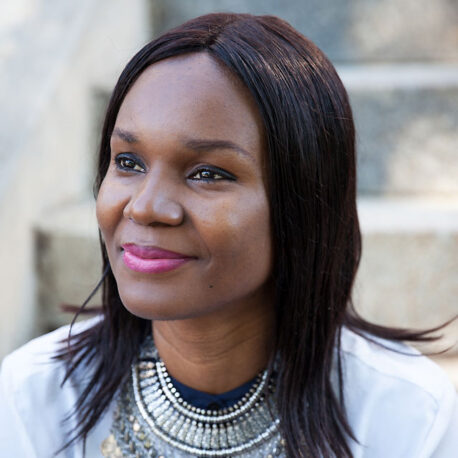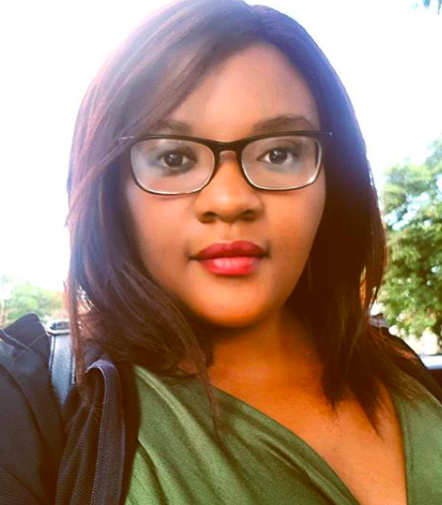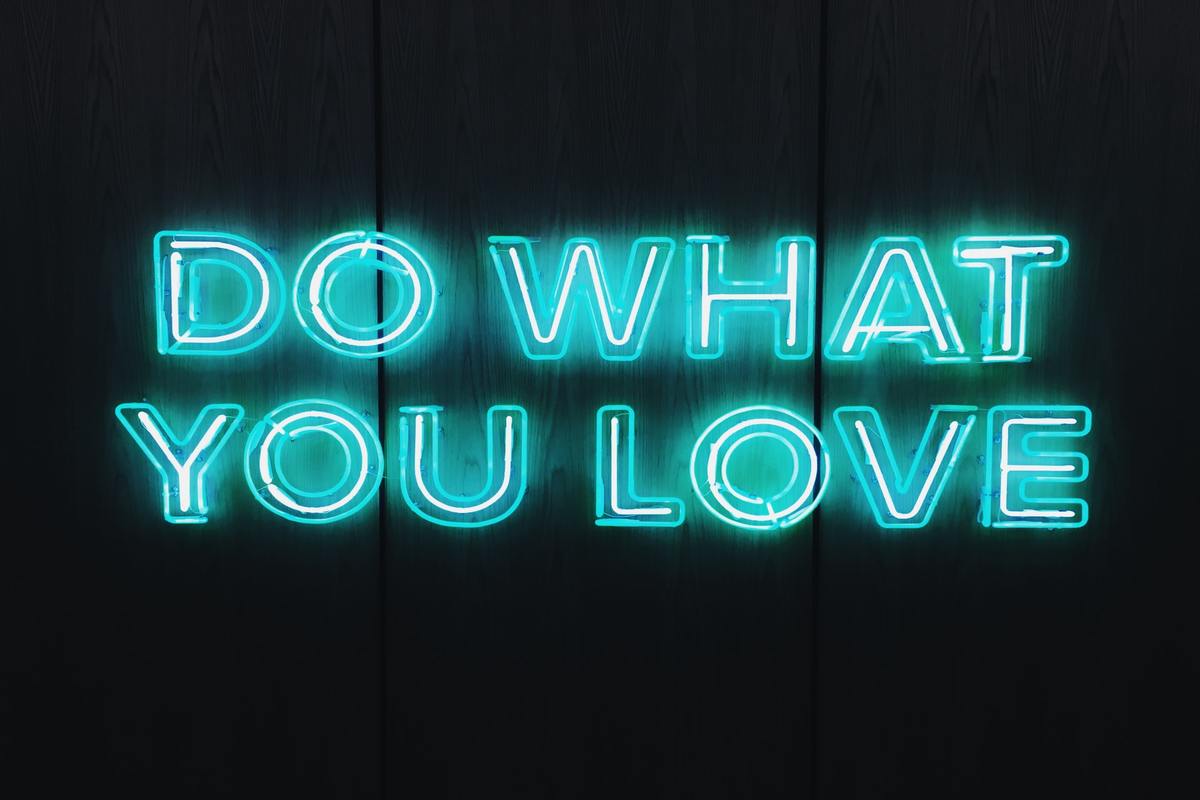[av_hr class=’custom’ height=’50’ shadow=’no-shadow’ position=’center’ custom_border=’av-border-fat’ custom_width=’100%’ custom_border_color=’#1f4e78′ custom_margin_top=’30px’ custom_margin_bottom=’30px’ icon_select=’no’ custom_icon_color=” icon=’ue808′ font=’entypo-fontello’ admin_preview_bg=”]
Ukamaka Olisakwe takes us through her second novel, Ogadinma Or, Everything Will Be All Right, which is the type of story that slowly slides under your skin and stays there. Set in the backdrop of 1980s Nigeria, a time of political unrest, it centres on a teenage girl called Ogadinma who is banished from home by her father after also being a victim of sexual abuse. We follow the protagonist into a violent marriage, and coming into her own thereafter. The book is richly visual and evocative in its storytelling, making you watch helplessly as the naïve and pure-intentioned protagonist is taken advantage of by systemic patriarchy. There is a clear balance where the story arc is richly developed, with characters that are both somewhat vulnerable and strong. Released in September 2020 by Indigo Press (UK), Ogadinma Or, Everything Will Be All Right has already been hailed as a modern feminist classic.
Emelda Gwitimah: Was your intention to have this book become the rising feminist think piece it is fast becoming? In your own words, what is Ogadinma really about beneath the surface?
Ukamaka Olisakwe: When I set out to write Ogadinma, I didn’t plan to write The Feminist Novel. My library is filled with western books by women about women who challenged patriarchy in not-so-subtle ways, whose experiences are different from the women I grew up with.
A caucasian reviewer thought my protagonist was not feminist enough. She had expected Ogadinma to exhibit the heart-warming heroics you’d find in western feminist novels and manifestoes. And that’s the thing about western feminism: it is very clever. It crept into our social conversations with well-meaning intentions. We were impressed by its clearly and strongly worded theories, and so declared it the gospel every woman should live by. But then, like the Christian religion did with our traditional religions, it ignored our local ideologies. What it failed to understand is that even though we didn’t have a defined term for our collective struggles and pursuits, there were feminist thoughts in our endurance, in how we carry ourselves, and even in the compromises we make in societies that ennoble men.
So, when I set out to write Ogadinma, I wanted to create something that reflects the peculiar resistance and/or perseverance of the women in my family, who got married when they were just teenagers.
EG: With that in mind, what’s the most difficult thing about writing about the opposite gender?
UO: That would be capturing men in all their complexities. The hardest character to write in Ogadinma was the protagonist’s father, Osita, who was a loving dad and a terrible patriarch.1 He is the reflection of the fathers we know in Nigeria, who love their daughters but are quick to punish or ostracise them for straying from certain religious or cultural norms that insist a woman’s body, her entire existence, belongs to a man.
EG: There’s been a lot of conversation over the last decade about so-called minority writers and whose responsibility it is to tell certain stories. Your books so far have dealt with some iteration of an African experience. Do you see yourself as a “minority writer”?
UO: I do not engage with most of these terms and I guess this is my Igbo snobbery speaking. The truth is, in Nigeria, no one considers me a “minority,” no matter the patriarchy or the ethnic conflict we frequently deal with. Also, my people call me “Nwanyi ocha,” which is translated to mean “fair-skinned woman.” But then you change location and because of the politicization of identity in spaces like in the United States, you realize that there is a box that has been created for you, which you must check on every government form.
I do not tick those boxes when it comes to my writing. Because my primary audience is my south-eastern Igbo community, and because I think there is a power dynamic in the languaging of certain well-intentioned terms—I mean, “minority writer” suggests that there is a superior other who thumbs their nose at you, which makes me very uncomfortable—I do not allow such terms to limit the scope of my writing.
EG: Do you envision yourself writing about American and European characters? Do you feel African writers can write convincing non-black and brown characters?
UO: I am currently revising a novel that has a few non-Nigerian characters—a nod to my experiences in the United States—however, I am not interested in centering non-Nigerian characters in my stories. I have a lifetime of Nigerian stories to tell. Our lives are rich, chaotic, complex, and begging to be explored in our stories. I do not need to explain or translate. Yes, I write in English, but we have already claimed that language and moulded it into a vehicle to convey my local assortments.
I do not feel like a “minority” in my Nigerian stories. I do not feel the pressure of racial dynamics. I am just me: an Igbo Nigerian woman who talks a lot about her people.
EG: 2020 brought about a kind of unravelling of the old publishing order, with hashtags like #PublishingPaidMe which were truly eye-opening. What do you feel is the most unethical practice in publishing right now, and from an artist’s perspective, what, if anything, can be done about it?
UO: I think more publishing houses should have non-white people on their editorial boards. I applaud the writers who started that #PublishingPaidMe trend: they opened the door to a necessary political conversation in the United States about the systemic racism that segregates people of color in the US publishing industry. Now, a few houses are no longer paying lip-service to diversity; more editorial boards are beginning to look a lot less like a Trump Administration Whitehouse photoshoot.
EG: Now that we’re talking about when you’re done, what do you consider literary success? Do you think the so-called “COVID-boom” in publishing sales will last?
UO: Was there really a COVID–boom in sales? Most debut authors suffered terribly this period; their book events got cancelled and many bookstores suffered. The economic impact prompted organizations to launch relief initiatives for artists who were affected by the pandemic.
It hasn’t gotten easy. The dominant conversation in the United States is the elections, which has taken attention away from many books, especially those published by small presses. However, I do know that many political novels and non-fiction sparked a lot of attention during the George Floyd protests and sparked a lot of sales.
If there was any boom, then it would be the sheer amount of work some writers have produced this period. This speaks to how writers are needed most in times of uncertainty.
EG: You’ve recently done a digital book tour; interviews, webinars, panels, all conducted online. What key takeaways can you share about being a writer taking the responsibility for marketing their book into the digital space?
UO: Promoting a book on social media is a tedious task. You try not to spam your followers, so they don’t click the unfollow button or mute you. But it is also rewarding and empowering. Gone are those days when the success of a book is determined by the promotion it gets from top magazines and papers. Now, you have Instagram review pages with a large following, who host conversations and stir public interest. Also, writers are encouraged to maintain active engagement on their social media, as this helps book sales. Sometimes, I want to step away from social media, but I enjoy the conversations. I enjoy directly interacting with readers who have something to say about my text.
EG: Still on social media, there are new lit mags arriving on the scene. Isele Literary Magazine is your baby, one of the newer African literary collections that curate fresh talent. What makes Isele standout?
UO: Our contributors. We have published works by amazing writers like Chika Unigwe, Esther Ifesinach Okonkwo, Logan February, Innocent Chizaram Ilo, Rosebud Ben-Oni, Biance Stone, Rob Spillman, Ope Adedeji, and so many others. Isele is just three months old but she feels a hundred, and I am grateful to everyone who has trusted us with their work.
EG: Now after multiple awards and publications, and an impressive education to boot, how has your art saved you?
UO: It told me it is okay to be loud and selfish, to care less about likability and more about my mental health. Because my health, my wellbeing, should always come first.
- Read Uka’s craft essay on how to give a sexist character texture here.
[av_hr class=’custom’ height=’50’ shadow=’no-shadow’ position=’center’ custom_border=’av-border-fat’ custom_width=’100%’ custom_border_color=’#1f4e78′ custom_margin_top=’30px’ custom_margin_bottom=’30px’ icon_select=’no’ custom_icon_color=” icon=’ue808′ font=’entypo-fontello’ admin_preview_bg=”]
[av_one_half first]

[/av_one_half][av_one_half]
I had the privilege of e-meeting Ukamaka Olisakwe via the mean streets of Twitter. As a budding writer seeking community, I was drawn to her through her ability to graciously share insights and opportunities with upcoming writers on her Timeline. Ukamaka first started writing in 2010, and moved to the US in 2016 after being awarded a writing fellowship by the University of Iowa’s International Writing Program. In 2018 she won the Emerging Writer Scholarship at VCFA and graduated with her MFA in Writing & Publishing in 2020. She is currently pursuing her PhD at the University of South Dakota.
[/av_one_half]
[av_hr class=’custom’ height=’50’ shadow=’no-shadow’ position=’center’ custom_border=’av-border-fat’ custom_width=’100%’ custom_border_color=’#1f4e78′ custom_margin_top=’30px’ custom_margin_bottom=’30px’ icon_select=’no’ custom_icon_color=” icon=’ue808′ font=’entypo-fontello’ admin_preview_bg=”]
[av_one_half first]

[/av_one_half][av_one_half]
Emelda Gwitimah is a Zimbabwean advertising copywriter & former Associate Creative Director. Her short stories have appeared in The Willowherb Review & Bambazonke Magazine, & her poetry has been featured in the anthology One Poem: Survivor’s Edition. She is an MFA in Writing and Publishing candidate in the 2022 class.
[/av_one_half]
[av_hr class=’custom’ height=’50’ shadow=’no-shadow’ position=’center’ custom_border=’av-border-fat’ custom_width=’100%’ custom_border_color=’#1f4e78′ custom_margin_top=’30px’ custom_margin_bottom=’30px’ icon_select=’no’ custom_icon_color=” icon=’ue808′ font=’entypo-fontello’ admin_preview_bg=”]
latest jordan Sneakers | 【国内4月24日発売予定】ナイキ ウィメンズ エア アクア リフト 全2色 – スニーカーウォーズ